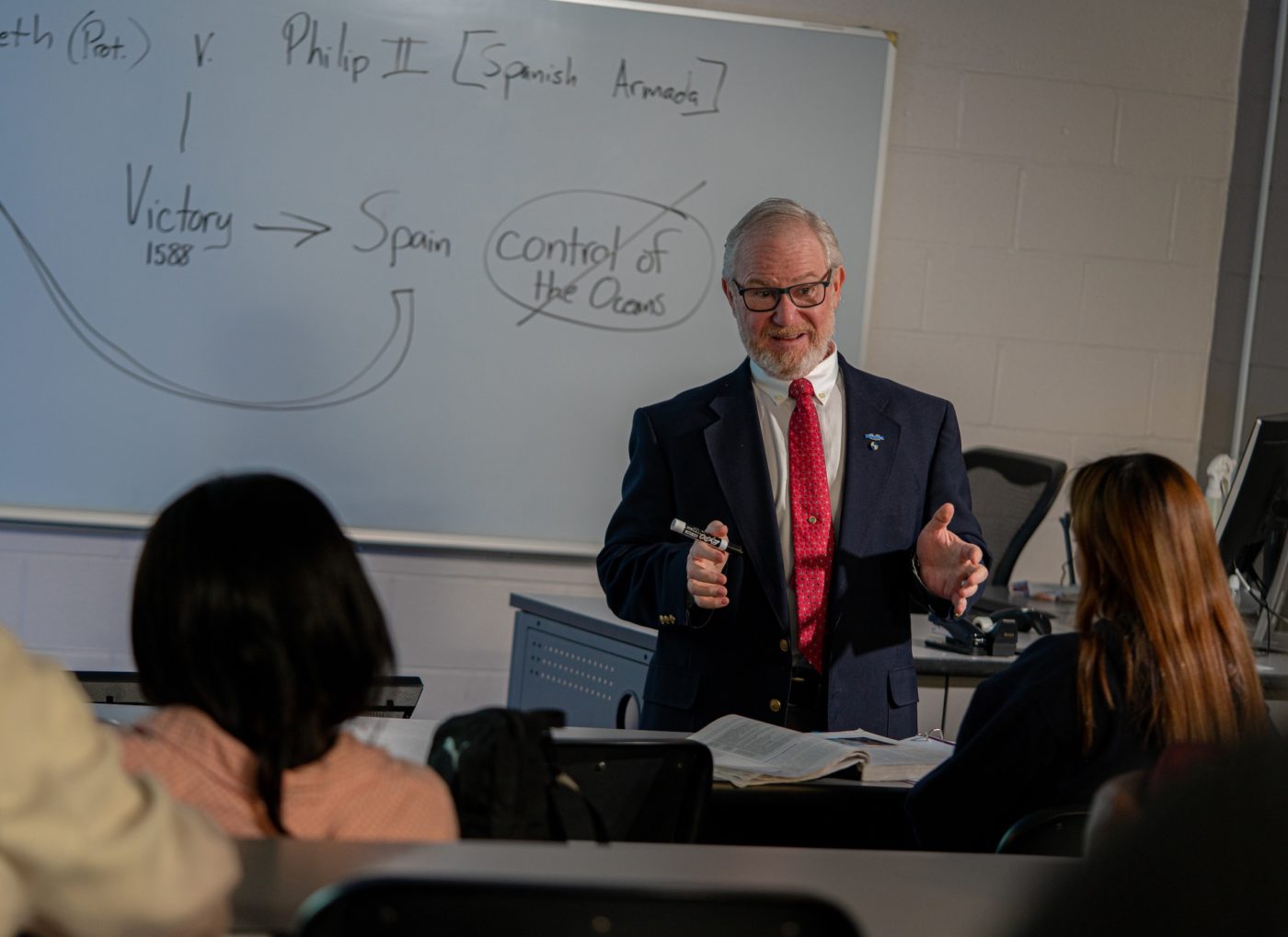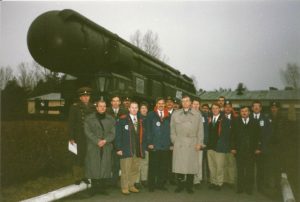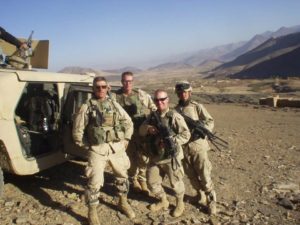
Not many professors can say they once worked as a stand-up comedian. Probably even fewer can say they speak fluent Russian and used to inspect nuclear weapons in former Soviet countries. Mike St. Jacques has done that and more.
The Massachusetts native only spent a semester at community college after graduating high school.
“I had zero discipline and had blown all my money,” he said. “I needed to get my act together.”
So, Professor St. Jacques joined the Massachusetts Army National Guard and became an infantry scout. He immediately went into intelligence work, and after a year took the Defense Language Aptitude Battery, which showed he had a knack for Asian and Slavic languages. That led to his learning Russian and then being stationed in Germany from 1991-1993.
“That’s when the Soviet Union collapsed,” he said. “I was working as a Russian cryptologic voice interceptor operator.”
As part of the Strategic Arms Reduction Treaty (START), Professor St. Jacques would inspect and serve as an interpreter at nuclear weapons sites in the former Soviet Union. 
Recently, Professor St. Jacques has used the expertise he gained in that role to share his views on the Russian incursion int Ukraine. “Ukraine” means “on the borderlands,” he said, and Russia has thought of it as their border, rather than a sovereign country. Meanwhile, Ukrainians are fiercely independent.
After leaving the Army in 1999, the professor worked as a stand-up comedian – his comedic skill came in handy when working with the Russians.
“I actually got the idea on one of my inspection missions in Siberia,” he said.
A man who had gone to school with famed Saturday Night Live comic Dana Carvey suggested he give comedy a shot. Professor St. Jacques performed on a TV show in Maryland and performed at comedy clubs in Northern Virginia. But, as a single father, he couldn’t take his act on the road.
At about the same time, Professor St. Jacques realized he missed the camaraderie of the Army, and so he joined the National Guard unit in Winchester in 2000. He did a tour in Afghanistan in 2004. However, he was still a single parent and long deployments were tough, so he got out of the guard in 2006, and worked in construction for a couple of years. 
“I just wanted to be out there with a couple of guys swinging a hammer,” Professor St. Jacques said.
Following neck surgery, he realized he needed a new line of work, which is what brought him to Laurel Ridge – as a student. Initially, he intended to become an engineer, that is, until he took a history class.
“When I came here, there was this rock star history guy named Jonathan Noyalas – I took his class and said, ‘I want to be that guy who engages people,’” said Professor St. Jacques.
He earned his associate degree in general education in 2011 and transferred to James Madison University, where he earned a bachelor’s degree in history with a minor in Russian studies. Professor St. Jacques went all in on his history studies, earning a master’s in history, specializing in world history, from JMU in 2016, and another master’s in history, specializing in Russian history, this time from Carnegie Mellon University in 2017.
Rather than finish his Ph.D., Professor St. Jacques decided he would rather plunge right into teaching.
“I kind of wanted to give back,” he said. “I didn’t think it was fair to not share that knowledge, and with my stand-up comedian background and interpreter background, I was comfortable in front of people.”
In 2017, Professor St. Jacques was hired to begin teaching U.S. history at Laurel Ridge.
For St. Jacques, whose children have followed in his footsteps – his son joined the army and his three daughters all attended Laurel Ridge, making history relevant and relatable for his students is the most enjoyable aspect of teaching.
“A lot of students think that history is black and white, that historical actors were entirely different than they we are today, and that history is just a bunch of names and dates with little bearing on the present or the future,” he said. “By the end of my courses, they see that everything is shades of gray, that people are people with many of the same motives, feelings, and shortcomings that we have today, and that examining past events can shed invaluable insight into our modern world.
“Even better than that, is when I get to learn from my students. There is nothing more satisfying for any teacher than to watch a pupil become the instructor.”
Laurel Ridge Community College was known as Lord Fairfax Community College until June 2022. For consistency purposes, the college will be referenced as Laurel Ridge going forward.
